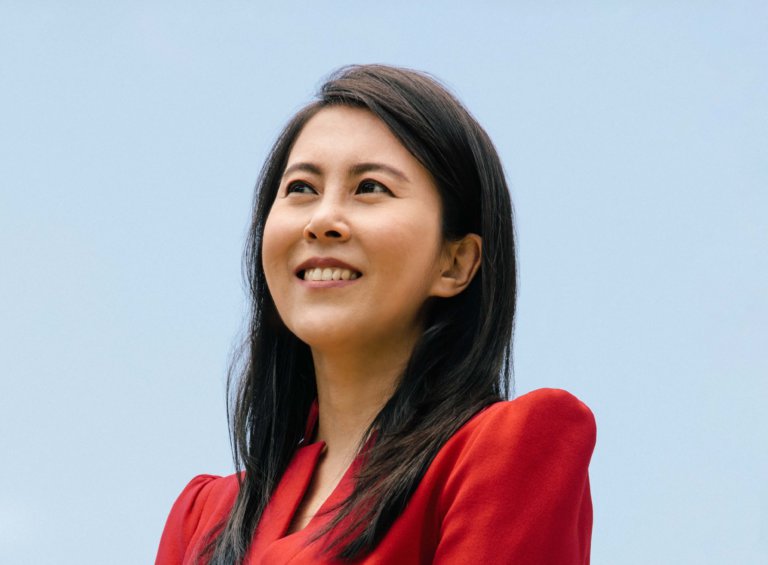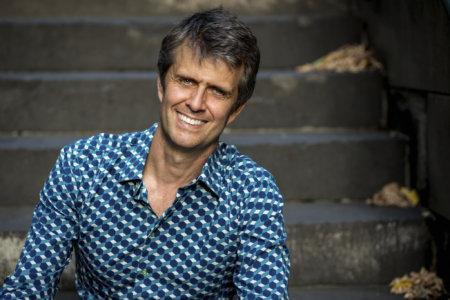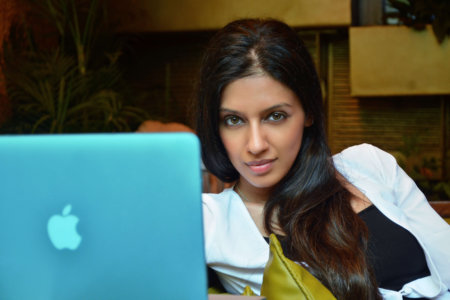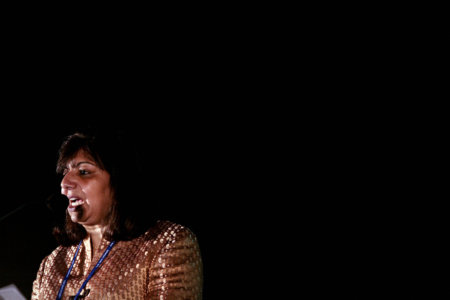
For many women, opportunities in STEM are far and few in between — even more so for women in space. In 2021, the United Nations (UN) found that approximately one in five space industry workers are women.
Women CEOs only make up 19% of aerospace and defence leaders — a shockingly low figure in an industry that is rapidly developing and laden with opportunities.
Lynette Tan, however, is one of the few women at the helm of the industry. The Singaporean has always been drawn to opportunities where new pathways could be built, and spaces where women such as herself could be at the forefront of change. It’s one of her biggest motivators in joining the space industry.
“It is the ultimate frontier for building new pathways, connecting the dots to a much bigger picture that affects our world and our universe,” she tells Study International.
With this in mind, Tan set up Singapore Space and Technology Ltd (SSTL) to connect the space industry with local markets in Asia and beyond. Her biggest ambition? To bring Asia to the forefront of dialogues around the global space industry.
Fifteen years on, Tan is at the head of Asia Pacific’s leading pioneer space organisation. She has also started Space Faculty, a dedicated learning and development pathway for companies and individuals that draws from the collective experiences of experts across the deep tech and space sectors.
We speak to Tan about her beginnings as a business student at INSEAD, the challenges she and other women in space encounter, and how she overcame them.

Tan is moving to change the landscape of the Asian space industry through Space Faculty. Source: Lynette Tan
How did your project begin?
SSTL started as a passion project I shared with a group of enthusiasts who wanted to bring space technology to every part of the world we live in. We started discussions over coffee and that caffeine has fuelled our space dreams ever since.
Space Faculty, on the other hand, was always something I knew had to be done. So, it was more of a case of finding the right moment. And now is the right time because the space industry in Asia has matured tremendously in the last few years and we do need to start building passion and capability for space with tremendous intentionality.
What challenges have you faced as a woman in a male-dominated industry?
The deep technology and space sector is traditionally much more male-dominated – and I believe it is because of a more historical reason rather than a conscious decision to exclude anyone. There were fewer women who joined the field, to begin with, and after a while that in itself made the field less relevant and less open to women.
However, the gender imbalance does set up a certain dynamic: I have had to work harder and be much more knowledgeable to be heard, although this too is changing rapidly.

“There were fewer women who joined the field, to begin with, and after a while that in itself made the field less relevant and less open to women.” Source: Lynette Tan
How have you contributed to the advances of the private space industry?
One of my earliest and to-date most significant contributions is setting up the Global Space and Technology Convention. We started it 14 years ago – creating a platform for high-level dialogues, meaningful G2G, B2G and B2B connections and a marketplace to stimulate the then-fledgling space industry. Fourteen years on, it has earned the reputation as the one major Asia space industry platform that the world cannot miss.
I also worked with my team to launch Singapore’s very first accelerator programme for space startups. In two years, the programme has 37 companies from 17 countries that cover every region in the world – from the US and Europe to Japan, India and Singapore. The combined valuation of the companies stands at close to 800 US million dollars, with a CAGR of over 60%. A testament to the quality of the startups, over 38% of the portfolio is already receiving institutional investment.
The most recent is the newly established Space Faculty. This is going to be a game-changer for the industry because it is coming at the perfect time when the world is looking to space for answers to life on earth — from the Internet of Things and connectivity to climate change.
Do you have a particular memory that sticks out in your mind about any gender-based discrimination you have faced?
I have certainly been told to do, say or feel something because I am female. Perhaps it’s these seemingly little instances that are the most insidious because you often bat it away as a once-off, but eventually, they resurface.
There are so many expectations that are set for our gender and these cut across culture, ethnicity, culture and industry.
That is why I make a conscious choice as much as possible to be a supporter, mentor or champion to other women in space because it certainly is time for us to change the gender dynamic for the better.

Tan gained an education at INSEAD, the Business School for the World. Source: Lynette Tan
Why is it important to have women in space?
It is well-established that diversity is an asset – in any situation. This is no different in the space sector.
The fact that we sometimes have to justify gender diversity is in and of itself a statement of a very deep, systemic imbalance.
How did your education at INSEAD help boost your career?
In the field that I work with, we deal with international partners, and I felt that it was very important to pick a programme that genuinely provided me with an international education, could teach me about cultural diversity, about the latest developments in business management and that also goes into the roots of basic business fundamentals.
I found that many of the women in my Tsinghua-INSEAD Executive MBA (TIEMBA) class had experience in leadership. We have experience in going after our visions and dreams, but felt that our knowledge perhaps was a little patchy and could benefit from a structured way of understanding the business world. That’s why I joined the programme, and many of the women I met during the TIEMBA enrolled for similar reasons.
What I realised along the journey was that the reasons men joined the programme were vastly different. There’s a lot of talk about networking, but we realised that men and women come from different places when they want to pursue some of these executive programmes.
And I want to encourage more women not to doubt their reasons for pursuing higher education, but to really go forth because they feel they need it in their professional career or even in their personal journey.
INSEAD has opened my eyes to new ways of doing business, because it is so very current with its syllabus. It has opened up new ways for me to accelerate my business, and I can say confidently that because of the TIEMBA, my team, my management, and my business has seen so many positive benefits.

“Don’t be constrained by concepts like ‘compromise’ and ‘negotiation’.” Source: Lynette Tan
What advice would you give to ambitious young women in space?
Decide the life you want and live it. You can have your cake and eat it – with the right mindset.
Don’t be constrained by concepts like “compromise” and “negotiation”. I often hear these words associated with women’s careers and family needs. We don’t hear men talking about their careers, family lives and personal passions in the same way.










